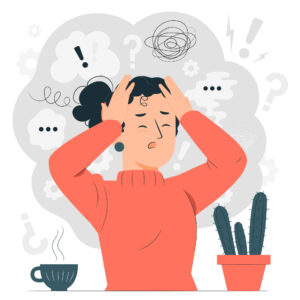
Sleep is essential in helping the brain form memories and store them long-term. Scientists have also discovered that certain stages of sleep can even promote creative thought – for instance, German chemist Kekule invented the structure of the benzene molecule after taking a nap!
Sleep Resets Your Brain
Sleep can seem like an unimportant task, but the truth is your brain is actually performing an array of important functions while you rest. Sleep helps reset your operating system; and in physics terms criticality describes a state where complex systems reach an ideal state – an equilibrium point between order and chaos.
Science magazine published a new study which demonstrated how sleep strengthens connections between neurons, helping people learn and retain new information more easily. Researchers monitored electrical pulses produced by optically translucent zebrafish brains during sleep; this allowed them to observe how synapses between neuronal structures weaken or strengthen throughout a night of restful slumber.
The team discovered that every moment of waking pushes brain circuits away from criticality and sleep is perfectly placed to reset them – which explains why all animals require sleep for healthy cognition.
It Clears Out Toxins
One theory behind why we sleep is that sleep allows the brain to flush away toxins built up during the day, using cerebrospinal fluid as it cycles in and out of our brain in waves to flush away waste products like beta-amyloid.
Maiken Nedergaard of Rochester Medical Center discovered last year that sleep opens plumbing pipes known as the glymphatic system, which carry away waste materials from the brain. To test it further she injected dye into mice’s bodies and observed how quickly or slowly it cleared away when awake compared with when asleep or under anesthesia.
She discovered that mice sleeping under anesthesia had their glymphatic systems clearing away dye faster, suggesting it helps clean their brain by clearing away toxic waste byproducts such as those associated with neurodegenerative disorders.
It Helps You Form Memories
Researchers have discovered that sleep is essential in cementing short-term memories into long-term ones. New information acquired during the day is stored in your hippocampus (a seahorse-shaped part of your brain near the back of your skull), however its storage capacity is limited so at night your cortex consolidates these short-term memories into permanent ones.
Sleep may also help your brain focus more effectively on storing important information by cutting away connections that no longer serve its function, giving your neurons more room to make connections that help store information more efficiently.
Your body goes through several different stages of sleep at night, alternating between rapid eye movement (REM) and slow-wave sleep – sometimes known as deep sleep – both seem to play an essential role in memory consolidation. Slow-wave sleep allows the brain to reactivate newly encoded neural memory representations, transform them and make them more stable for long-term storage; then during REM sleep those transformed memories may help jog or bring up memories from long ago that help recall important events or solve problems.
It Helps You Relieve Stress
Researchers have determined that insufficient sleep can actually increase stress and anxiety levels, since when your brain activates a region responsible for emotional processing and worry when you don’t sleep enough.
When this occurs, it’s easy to become caught in an impenetrable cloud of “brain fog,” making mistakes you know are dumb but can’t seem to avoid and finding it harder than usual to understand simple tasks. Adequate sleep can help dispel this cloud and put you back in charge.
To achieve optimal sleep, it’s crucial that you go to bed and wake up around the same time every day. Doing this helps your internal clock stay regular, helping you fall asleep easier and wake up feeling revitalized and ready to tackle each new day. In addition, sticking with an established sleeping schedule may reduce stress levels while improving mental wellbeing.



